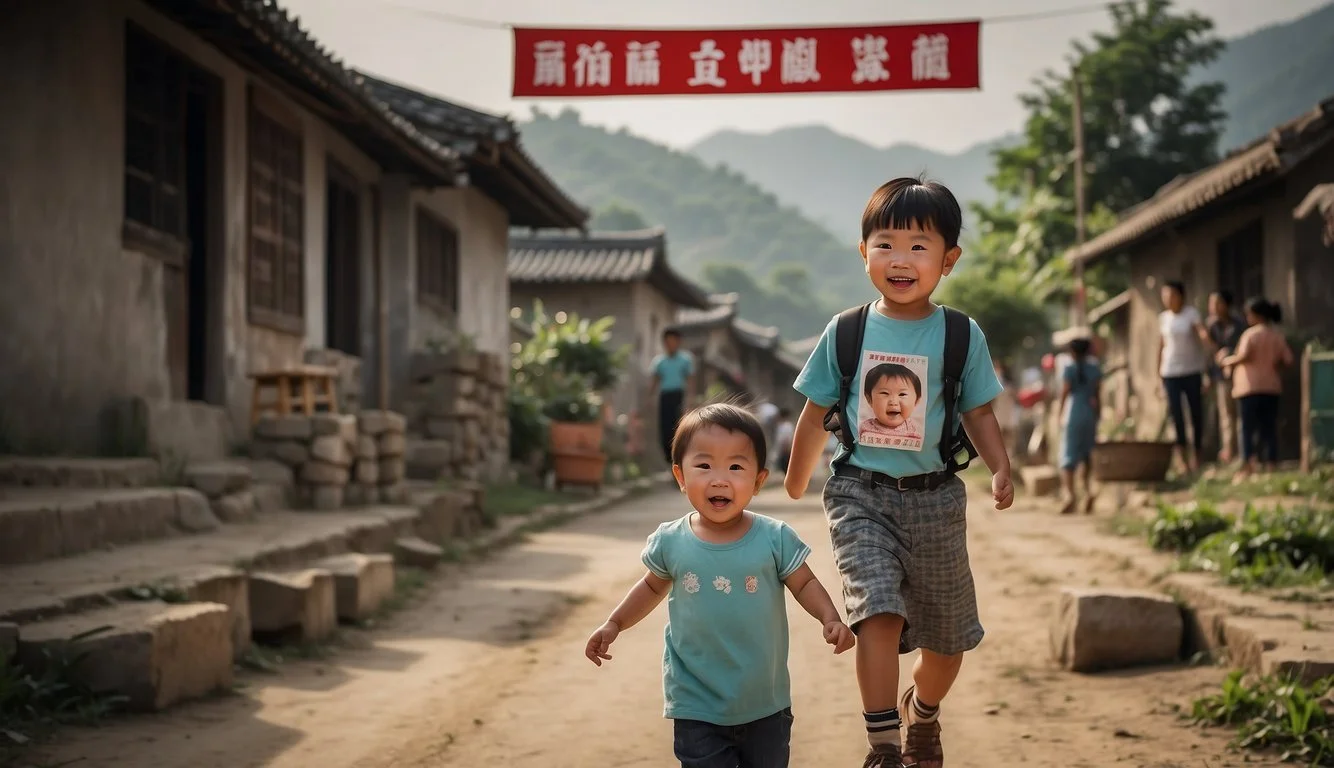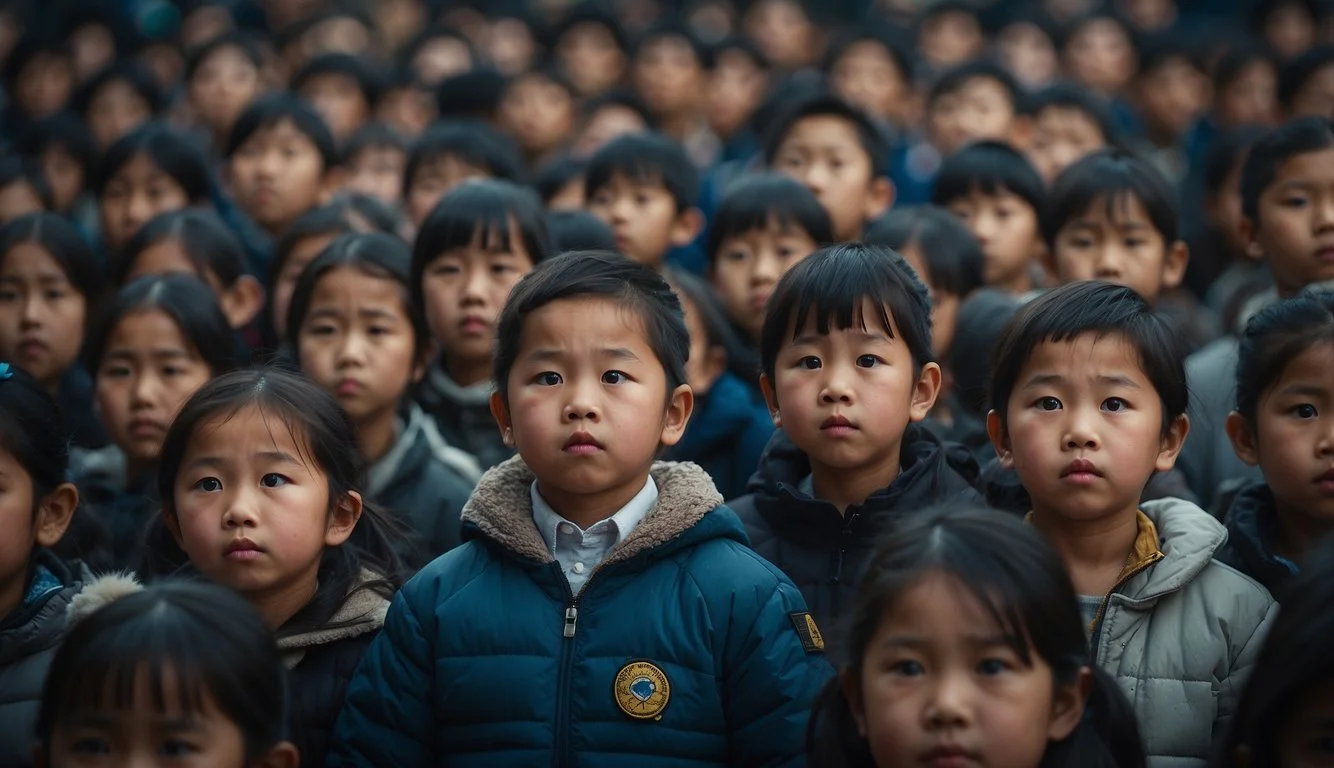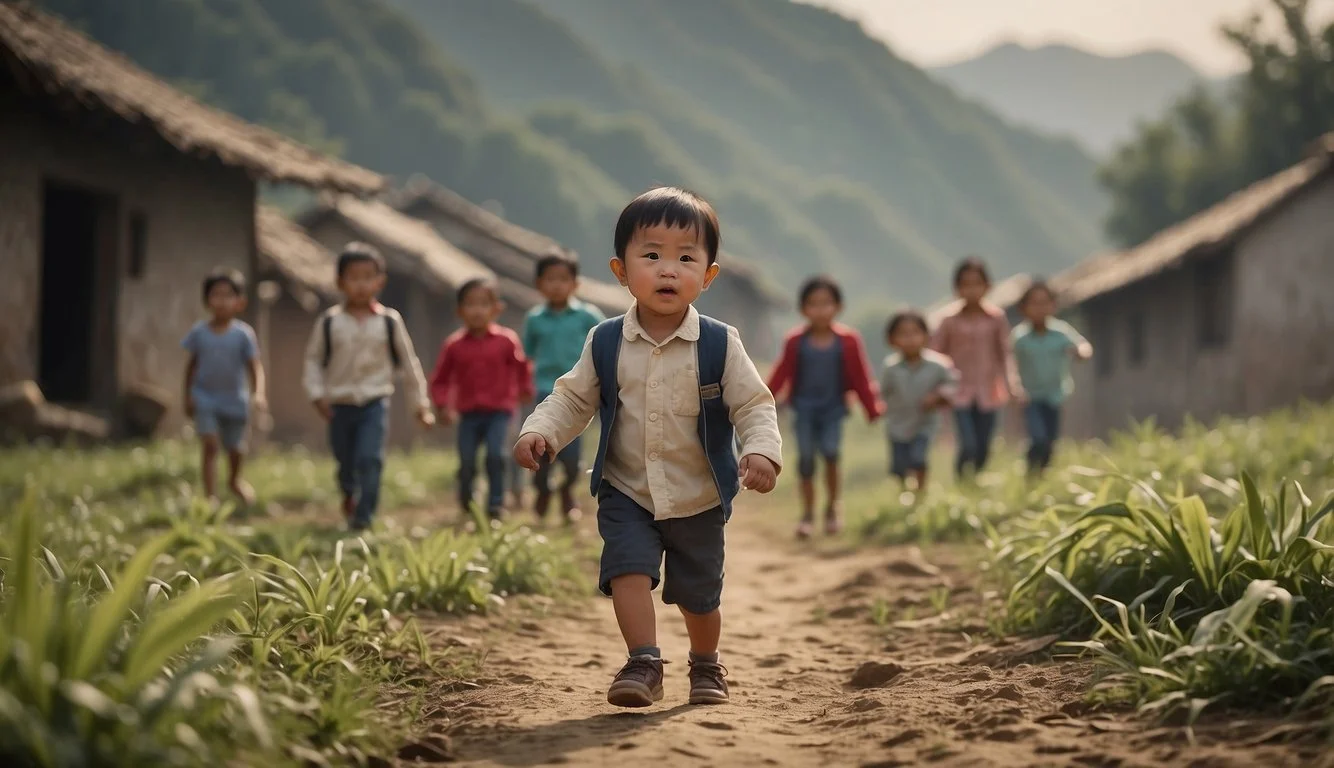Documentary Review: One Child Nation (2019)
A Deep Dive into China's One-Child Policy
The 2019 documentary "One Child Nation," directed by Nanfu Wang and Jialing Zhang, offers a piercing look into China's one-child policy and its far-reaching consequences. This film combines personal narratives with historical context to reveal the harrowing impacts of the policy. By interviewing a range of people from relatives and activists to journalists and traffickers, the directors paint a comprehensive picture of the policy's legacy.
In its unflinching examination, "One Child Nation" delves into the lives of those affected by the policy, unraveling stories of forced sterilizations, abandoned children, and a society shaped by governmental control. The film stands as a powerful testament to the trauma and societal changes engendered by one of China's most infamous social experiments.
The policy, which ended in 2015, continues to cast a long shadow over the nation. This documentary doesn't just highlight the tragedies but also scrutinizes the propaganda that sustained the policy, exposing the stark realities behind government narratives. For anyone looking to understand the intricacies of this historical period, "One Child Nation" provides a detailed and emotional portrayal.
Background of 'One Child Nation'
One Child Nation is a documentary directed by Nanfu Wang and Jialing Zhang, released in 2019.
The film examines China's one-child policy, which was enforced from 1979 to 2015, as part of a stringent population control campaign. It delves into the personal and societal impacts of the policy through various interviews and firsthand accounts.
Nanfu Wang, originally from China, returns to her homeland to uncover the reality behind the propaganda that supported the policy.
She speaks with a wide range of people including:
Relatives
Activists
Journalists
Healthcare professionals
These interviews reveal the brutal enforcement tactics and the deep-seated preference for male children, leading to instances of forced abortions, sterilizations, and child trafficking.
The documentary also incorporates archival footage and state-issued propaganda to illustrate the government's narrative and the cultural mindset during the policy's implementation.
One Child Nation offers a window into the lives of those affected, highlighting the emotional and physical toll. The filmmakers' personal connections to the subject matter add a poignant layer to the narrative, emphasizing the documentary's authenticity and emotional resonance.
Filmmakers' Perspective and Motivation
Nanfu Wang and Jialing Zhang, the directors of One Child Nation, approached this project with a deeply personal motivation. Wang, having grown up during China's one-child policy, was driven by her own experiences and the birth of her first child.
By conducting interviews with various individuals including relatives, journalists, and activists, the filmmakers sought to uncover the policy's far-reaching effects. Their goal was to explore both the social and personal ramifications of such a strict population control measure.
Wang and Zhang aimed to present an intimate portrayal of the policy's human impact. Their dedication to capturing honest and sometimes painful stories demonstrates their commitment to storytelling and truth.
The directors' decision to return to China for the project posed significant risks. Despite this, their determination underscores their desire to shed light on the policy's complex legacy.
Synopsis of the Documentary
One Child Nation delves into China's one-child policy, which was enforced from 1979 to 2015. Directed by Nanfu Wang and Jialing Zhang, the documentary explores the far-reaching consequences of this policy. Wang interviews various participants who were affected by or involved in this social experiment.
The film begins by showing the propaganda that promoted the one-child family as ideal. It conveys the depth of indoctrination that framed this policy as necessary for China's wellbeing. Government propaganda included posters, plays, and slogans.
The narrative weaves through personal stories, revealing forced sterilizations, abortions, and child trafficking. These practices were justified as part of the nation's effort to control population growth. The interviews highlight the trauma faced by those who lost their children or were forced to undergo sterilization.
Relatives, activists, journalists, and healthcare workers share their experiences and perspectives. The impact on rural communities, where the policy was more stringently implemented, is examined closely. Personal tragedies are set against a backdrop of national policy enforcement.
Nanfu Wang's journey back to her village offers a poignant insight into how deeply the policy infiltrated daily life. Her conversations with her family reveal a mix of compliance and regret. This personal angle adds an emotional depth to the factual recounting.
Throughout the film, the directors use archival footage and contemporary interviews. This combination paints a vivid picture of a policy that, while officially ended, continues to affect lives. The documentary underscores the enduring legacy of the one-child policy.
Historical Context of the One-Child Policy
China's one-child policy, implemented in 1979, was a government measure aimed at controlling population growth in the world's most populous country.
The policy emerged due to concerns about the capacity to support a rapidly growing population. Resources such as food, water, and housing were feared to be insufficient.
By restricting most families to a single child, the Chinese government sought to avert potential economic and social crises. Population control was seen as essential to sustain the country's development.
During the policy's implementation, the government enacted strict measures, including fines and forced sterilizations. Propaganda campaigns promoted the benefits of having a single child, often highlighting the nation's needs over personal desires.
The policy had significant social impacts, including gender imbalance, with a cultural preference for sons leading to selective abortions and infanticide. This created a generation skewed heavily towards males.
Understanding these historical factors helps illuminate the broader societal and personal ramifications explored in the documentary One Child Nation. The film examines how these policies influenced Chinese society and individual lives, offering a powerful lens through which to understand this complex period.
Cultural norms and government enforcement both played roles in shaping the policy's outcomes. Traditional values clashed with modern state mandates, creating a complicated legacy that continues to affect China today.
Personal Stories Highlighted
"One Child Nation" delves deeply into personal experiences shaped by China's One-Child Policy.
Nanfu Wang, one of the directors, shares her own family’s story. She interviews her own relatives who lived through the policy, exposing the emotional toll.
Activists and journalists provide accounts of their struggles against the policy. They reveal the harsh realities of state control and personal resistance.
Abortionists describe the difficult choices they were forced to make. Their narratives highlight the severe impact on women's bodies and lives.
Survivors of forced sterilization and human traffickers give poignant testimonies. These stories illustrate the darker consequences of the policy.
Personal narratives are interwoven to show the policy's far-reaching effects on Chinese society. Each story adds a layer to the complex history of the One-Child Policy.
Creative and Cinematic Elements
The documentary One Child Nation, directed by Nanfu Wang and Jialing Zhang, employs various creative and cinematic techniques to engage and inform viewers.
The filmmakers utilize archival footage effectively. Propaganda films from the Mao era are interwoven with Wang's personal journey, providing historical context and emphasizing the reach of China's one-child policy.
Visual contrasts play a crucial role. Bright, colorful scenes of family life contrast with somber, muted visuals when depicting the policy’s darker consequences. This juxtaposition enhances the emotional impact.
Narration is a key component. Wang’s first-person narrative voice adds a personal touch, making the film's exploration of policy consequences feel intimate and immediate. It invites the audience to connect deeply with the subject matter.
Interviews with a wide array of individuals, including relatives, activists, journalists, and former officials, lend depth and various perspectives. These interviews are presented thoughtfully, giving a human face to the policies discussed.
Music and sound design are utilized to evoke emotion and underscore pivotal moments. The score shifts between traditional Chinese compositions and more somber tones, reflecting the film’s transitions between past and present.
Cinematography is a highlight. The use of handheld cameras creates a sense of immediacy and intimacy. Shots are clean and purposeful, guiding viewers through complex emotional and social landscapes.
Editing choices ensure a cohesive narrative flow. The pacing allows for reflection, with carefully timed cuts that avoid overwhelming the audience with information. This measured approach supports the documentary's aim of thoughtful reflection.
The blend of personal storytelling, historical footage, and varied perspectives results in a compelling and impactful documentary that is rich in creative and cinematic elements.
Critical Analysis and Interpretation
One Child Nation (2019) directed by Nanfu Wang and Jialing Zhang, offers a compelling exploration of China's one-child policy. The filmmakers' methodical approach allows for a comprehensive understanding of the policy's extensive impact.
Wang and Zhang use first-person narratives to anchor their documentary in personal experience. This helps viewers connect emotionally with the subjects. The interviews vary from relatives and activists to journalists and government officials.
The film does not shy away from its grisly details. It presents both the propaganda that promoted the policy and the harsh realities faced by families. The strategic use of archival footage enhances the storytelling, providing historical context and a stark contrast to personal testimonies.
Cinematography and Editing
The documentary features clean, concise editing that keeps the narrative focused and impactful. Cinematography captures the raw emotions of the interviewees and the landscapes of modern and rural China. This visual style supports the film's emotional weight.
Ethical Implications
Ethically, the film raises significant questions about personal freedom, state control, and human rights. Wang and Zhang navigate these issues with a balanced perspective, ensuring that multiple viewpoints are represented, making the documentary a well-rounded exploration of a complex historical subject.
Audience Reaction
The film evokes a range of emotions from anger and frustration to sympathy and sorrow. Such a broad emotional spectrum ensures that the documentary leaves a lasting impact on its viewers. Critics have praised its unflinching delivery and detailed examination of the one-child policy's repercussions.
This blend of personal stories and factual content makes One Child Nation a powerful and informative film.
Impact of the One-Child Policy on Society
The One-Child Policy, implemented in China from 1979 to 2015, aimed to control population growth.
Demographic Changes
The policy created a significant gender imbalance. Many families favored male children, leading to a higher number of boys than girls. This has long-term implications for marriage and social stability.
Economic Effects
A smaller younger population places more pressure on the working-age group to support the elderly. The workforce is shrinking, impacting China's economic growth and sustainability.
Social and Psychological Impact
The policy affected family structures. Parents often put immense pressure on their single child to succeed, resulting in high stress and mental health issues. Additionally, the loss of siblings limited family support networks.
Cultural Shifts
Traditionally large Chinese families became rare. The absence of siblings changed cultural practices, leading to loneliness and a sense of isolation for those born under the policy.
Ethical and Human Rights Concerns
Forced abortions, sterilizations, and heavy fines for non-compliance were reported. These harsh measures raised global concerns about human rights violations and personal freedoms.
In summary, the One-Child Policy had profound effects on Chinese society, from gender imbalances to economic challenges and social transformations.
International Reaction to the Documentary
The documentary One Child Nation has stirred strong reactions globally. Critics and audiences across continents have praised the film for its unflinching examination of China's one-child policy.
Europe: European audiences were particularly moved, with many praising the documentary's emotional depth. Viewers in France and Germany noted the compelling personal stories that offered rare insights into the human cost of the policy.
North America: In the United States and Canada, the film was well-received by critics and general audiences. The documentary sparked extensive discussions on human rights and government policies, leading to several panel discussions and university screenings.
Asia: Reaction within Asia varied. While the film garnered attention in countries such as Japan and South Korea, where there was significant interest in China's social policies, reactions within China were muted due to censorship and restricted access.
Film Festivals: One Child Nation received critical acclaim at various international film festivals. It won the Grand Jury Prize at the Sundance Film Festival and was featured in numerous other festivals, including the Toronto International Film Festival.
Audience members often expressed shock over the details presented and showed appreciation for the filmmakers' bravery in tackling such a sensitive subject. While the film enjoyed global recognition, it also faced criticism from some quarters for its portrayal of China.
The global reaction underscores the documentary's impact and its role in fostering international dialogue on governmental control and personal freedom.
Controversies and Debates
"One Child Nation" addresses several controversies surrounding China's one-child policy. The documentary reveals the harsh methods used to enforce the policy, including forced abortions and sterilizations. These practices drew severe criticism from both domestic and international human rights groups.
The filmmakers, Nanfu Wang and Jialing Zhang, explore the psychological and emotional toll on Chinese families. Many were compelled to abandon or give up their second child for adoption. This aspect prompted debates on the ethical implications of government-imposed family planning.
The documentary also highlights the propaganda used to justify the policy. Government slogans and media campaigns promoted the idea that sacrificing individual rights was necessary for national prosperity. These tactics raised questions about the manipulation of public opinion and the extent of state control.
Internationally, the policy has sparked discussions about cultural differences in reproductive rights. Critics argue that Western perspectives on human rights may not fully apply to other cultural contexts. This has led to a broader conversation on the universality of human rights principles.
Within China, the policy's legacy lingers as the nation grapples with a gender imbalance and an aging population. Critics continue to debate whether the government should take responsibility for the social and demographic issues that resulted from the policy.
Comparison with Other Documentaries on Similar Topics
One Child Nation addresses China's one-child policy with depth and personal insight. This film stands out for its intimacy, brought to life by interviews with the directors' own family members and others profoundly affected by the policy. The combination of personal stories and political context provides a unique perspective.
The Last Train Home also explores China's socio-political landscape, specifically the impact of migration on families. It contrasts with One Child Nation by focusing on economic policies and their effects on family dynamics rather than population control. Both documentaries, however, highlight individual stories to illustrate broader societal issues.
In China's Stolen Children, the problem of child trafficking due to the one-child policy is examined. This documentary shares themes with One Child Nation, yet emphasizes the illegal market for children as a direct consequence of stringent reproductive laws.
Born in China provides a different angle by presenting the life of various animal families in China's wilderness. While it is not directly about human societal issues, it offers a glimpse into the natural world that runs parallel to the human struggles depicted in One Child Nation.
Human Harvest delves into the unethical practices within China’s transplant industry. It reveals grim facets of human rights abuses within the country, echoing the themes of state control found in One Child Nation. Both films shed light on the darker side of China's policies and their repercussions on individuals.
Examining these documentaries together reveals a complex and multifaceted picture of Chinese policies and their impact on families and individuals. Each film illuminates different aspects of life under restrictive governance, providing a richer understanding of the socio-political climate in modern China.
Conclusion
One Child Nation illuminates the profound and lasting impact of China's one-child policy. Through personal testimonies and historical analysis, the documentary exposes the human cost of a government-mandated social experiment.
The filmmakers Nanfu Wang and Jialing Zhang meticulously document the policy's consequences. They interview a range of individuals, from families affected by forced sterilizations to those involved in enforcing the law. This multi-perspective approach adds depth to the narrative.
The visual storytelling is complemented by archival footage and propaganda materials. These elements highlight the extensive propaganda campaign that promoted the one-child policy as a necessary solution to overpopulation. The juxtaposition of personal stories with state messaging creates a compelling contrast.
At just 89 minutes, the film maintains a brisk pace. It avoids excessive sentimentality, focusing instead on verifiable facts and firsthand accounts. This restraint ensures the documentary's credibility and impact.
The documentary does not shy away from graphic details. It includes interviews with former family planning officials and doctors, providing a stark picture of the policy's brutal enforcement. These moments are harrowing but essential for understanding the full scope of the policy's implications.
In addressing the policy's legacy, One Child Nation sheds light on ongoing social and cultural challenges in China. By examining the policy's repercussions, the film contributes to broader discussions about human rights and governmental control.
One Child Nation is an essential viewing for those interested in social policy, human rights, and modern Chinese history. Its balanced approach and thorough investigation make it a powerful documentary.








